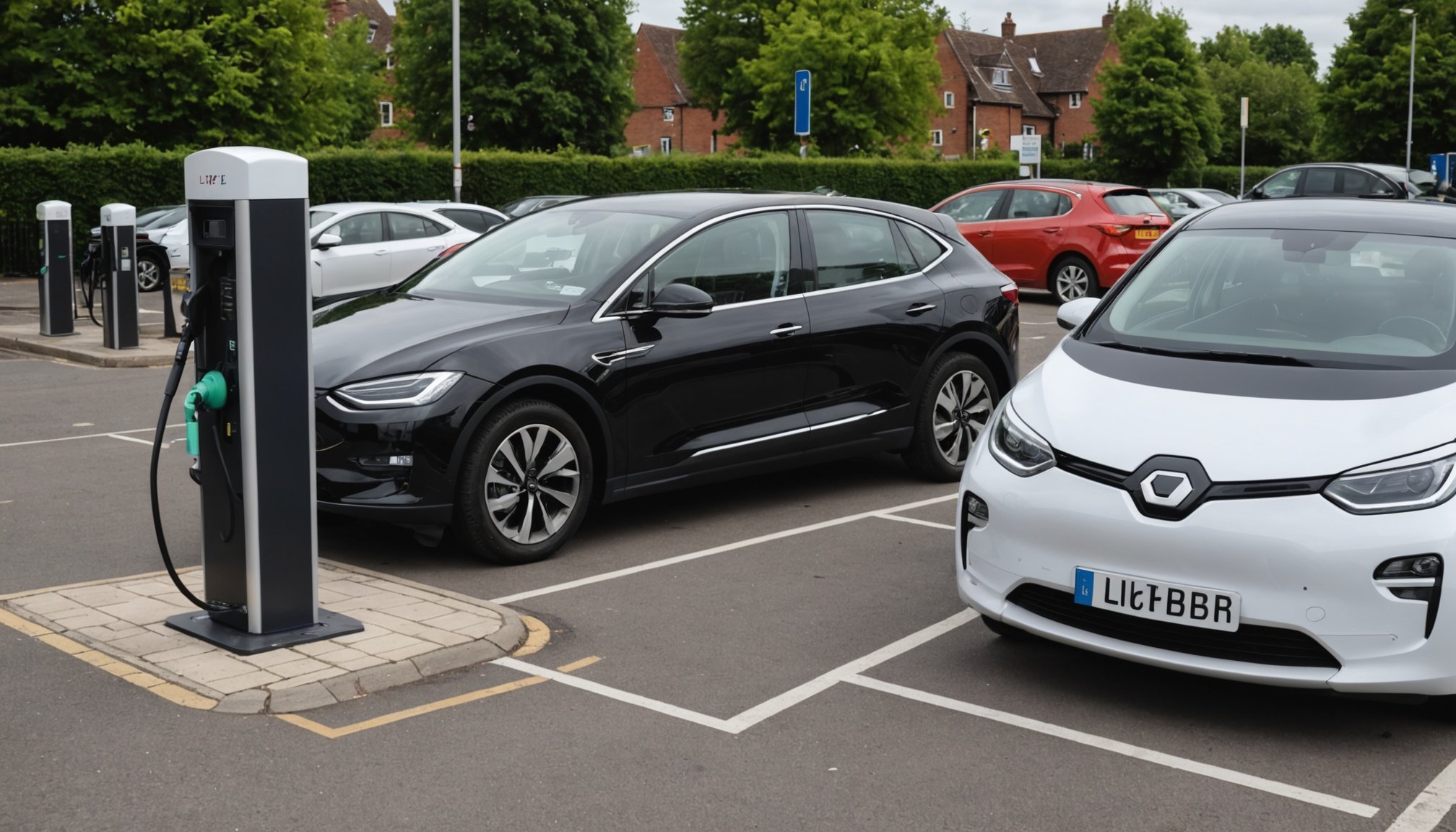The recent updates to UK electric vehicle charging station regulations present both challenges and opportunities for businesses and individuals. Understanding the compliance landscape is essential for successful implementation and operation. This comprehensive guide breaks down the key regulations, clarifies requirements, and offers practical tips for compliance. Whether you’re a business owner or an EV enthusiast, empowering yourself with this knowledge is vital in harnessing the potential of electric mobility while ensuring adherence to the law.
Overview of New UK Electric Vehicle Charging Station Regulations
The UK EV charging regulations have introduced a comprehensive regulatory framework to ensure the effective deployment and operation of charging stations across the country. These regulations aim to standardise the infrastructure, making it more accessible and reliable for electric vehicle users.
A découvrir également : Navigating the Path to UK Citizenship: Your 2023 Guide to Naturalization Application
Key regulations include requirements for the installation of smart charging points, which allow for better energy management and integration with the national grid. This is crucial for maintaining grid stability as the number of electric vehicles continues to rise. Additionally, there are mandates for public charging stations to be universally accessible, ensuring that all drivers can conveniently charge their vehicles.
Compliance with these regulations is vital for both businesses and individuals. For businesses, adherence ensures that they can operate legally and avoid potential penalties. For individuals, it guarantees that charging stations meet safety and accessibility standards, providing peace of mind and convenience.
A lire en complément : Navigating the 2023 Process: A Complete Guide for UK Consumers to Challenge Erroneous Utility Bills
The timeline for the implementation and enforcement of these UK EV charging regulations is structured to allow for a smooth transition. Businesses and stakeholders are encouraged to familiarise themselves with the compliance overview to ensure timely adaptation to the new standards. Understanding these timelines is essential to avoid disruptions and to benefit from the incentives associated with early compliance.
Compliance Requirements for EV Charging Station Operators
Ensuring compliance with the new regulations is essential for EV charging station operators. These compliance requirements are designed to establish consistent operational standards and enhance the charging infrastructure across the UK.
Licensing and Permits
To operate an EV charging station, acquiring the appropriate licenses and permits is crucial. Operators must ensure they meet all local and national regulatory criteria. This includes zoning permits, electrical safety certifications, and environmental clearances. Each permit serves to validate that the charging station adheres to stringent operational standards.
Safety Standards
Safety is paramount in the deployment of EV charging infrastructure. Operators must comply with rigorous safety standards to protect users and equipment. This encompasses regular maintenance checks, installation of safety mechanisms, and adherence to electrical safety codes. These measures ensure the safe and reliable operation of charging stations, mitigating risks for users and operators alike.
Environmental Considerations
Environmental responsibility is a key aspect of the new regulations. EV charging stations must consider their environmental impacts and adhere to regulations aimed at minimizing their ecological footprint. This involves using sustainable materials, implementing energy-efficient technologies, and ensuring proper waste management. By prioritizing environmental considerations, operators contribute to a cleaner, more sustainable future.
Step-by-Step Compliance Instructions
Navigating the compliance process for EV charging stations requires a structured approach. This step-by-step guide offers clarity on achieving regulatory adherence.
Begin with a thorough review of the regulations to understand specific requirements. This foundational step helps outline necessary actions and avoid missteps. Next, develop a comprehensive implementation strategy. This involves planning the installation of smart charging points, ensuring they align with national grid standards.
For installation, adhere to recommended practices such as engaging certified professionals. This guarantees that the setup meets safety and operational standards. Regular audits and maintenance checks should be scheduled to uphold these standards over time.
Documentation is critical. Keep detailed records of all permits, safety checks, and maintenance activities. This ensures transparency and provides evidence of compliance if needed. A robust record-keeping system simplifies the process of demonstrating adherence to regulatory bodies.
Finally, establish a feedback loop. Engage with users to gather insights and adjust operations accordingly. This proactive approach not only enhances service quality but also ensures ongoing compliance in a dynamic regulatory environment. By following these steps, operators can maintain a seamless and compliant EV charging service.
Common Challenges and FAQs
Navigating the new UK EV charging regulations can pose several challenges in compliance for operators. Understanding these hurdles and addressing frequently asked questions is key to successful implementation.
Technical Challenges
Operators often face technical challenges when integrating smart charging points with the national grid. Ensuring compatibility and reliability can be complex, requiring updates to existing infrastructure. A common concern is managing the increased load on the grid, which can lead to potential disruptions. To mitigate these issues, operators should collaborate with grid specialists and invest in advanced energy management systems.
Financial Considerations
The financial implications of compliance can be significant. Upfront costs for equipment, installation, and permits may strain resources. However, there are funding options available to alleviate this burden. Government grants and incentives can offset initial expenses, making compliance more achievable. It's crucial for stakeholders to explore these opportunities to manage costs effectively.
Community Engagement
Engaging the community is vital for the successful deployment of EV infrastructure. Addressing stakeholder concerns about location, accessibility, and environmental impact can foster support and acceptance. Operators should host public consultations and provide transparent information about the benefits of EV charging stations. By actively involving the community, operators can build trust and ensure a smoother implementation process.
Resources and Case Studies for Further Assistance
Navigating the complexities of EV charging regulations can be daunting. Fortunately, there are numerous resources for compliance available to guide operators. Organisations such as the Office for Zero Emission Vehicles (OZEV) and the Energy Saving Trust offer comprehensive support, ensuring operators have access to vital information and assistance.
Real-world case studies provide valuable insights into successful compliance strategies. For instance, a leading EV charging network in the UK successfully integrated smart charging solutions by collaborating with local authorities and grid specialists. This partnership enabled them to address technical challenges effectively, ensuring seamless operation and adherence to regulations.
Embracing industry best practices is crucial for efficient EV charging implementation. Leaders in the field recommend regular training for staff on new technologies and compliance requirements, ensuring a knowledgeable workforce. Additionally, investing in advanced energy management systems can enhance grid integration and operational efficiency.
- Key Resources:
- Office for Zero Emission Vehicles (OZEV)
- Energy Saving Trust
By leveraging these resources and learning from successful case studies, operators can achieve compliance while optimising their EV charging infrastructure. Understanding and implementing industry best practices ensures a robust and future-proof charging network.











